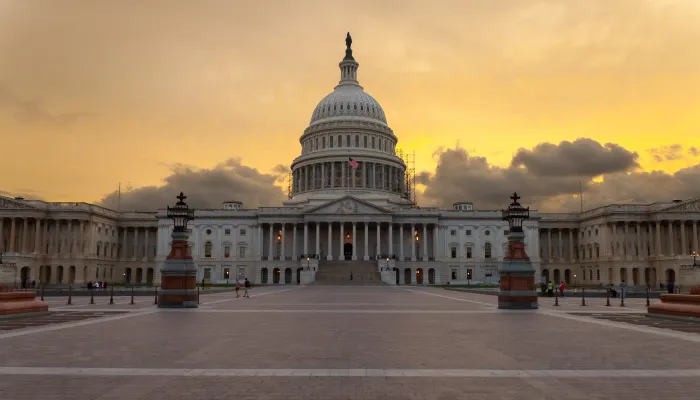Default in 2011?
Bruce Bartlett posits an interesting scenario for when debt default could occur in the US: next year. Before the panic sets in, we should clarify. He means that there is an increased possibility that, for political reasons, Congress might not pass a debt ceiling increase next year. This move would technically force the US to default. He explains the politics below:
The party opposite the White House always demagogues increases in the debt limit to score cheap political points. Economist Donald Marron calls the vote on raising the debt limit a tax on the party in power. Barack Obama knows this very well. As a U.S. senator he voted against a debt limit increase in 2006, saying that the necessity of raising the limit was “a sign of leadership failure.”
To be sure, the debt limit has always been raised in time to prevent a default, although Treasury sometimes had to push the limits of the law to move money around to pay the government’s bills. However, I believe the game has changed because Republicans have become extremely bold in using the filibuster to make it extraordinarily difficult to pass any major legislation without at least 60 votes in the Senate.
Especially considering the possibility of political shake-ups after the 2010 elections, a Republican-controlled Congress could hold a debt limit vote hostage in order to blame the Democratic White House for the debt. While debate on the debt is certainly welcome, playing a game of political chicken with the nation's fiscal and economic health is not. The public recognizes this as well, which is why when Newt Gingrich threatened default during the 1995 Clinton budget showdown, he had to back down.
But Bartlett says that a new element makes default this time around more likely: a number of conservatives who actually favor it. Their argument is essentially that since government spending cannot be kept under control through the political system, only a default that would make investors unwilling to fund any US debt would force lawmakers to balance the budget (presumably by cutting spending.) Granted, none of the members of Congress have taken this position and they likely never would, since they would be calling themselves too weak to balance the budget (not exactly a great political move.)
This "political" default is a variant on one of CRFB's possible fiscal crisis scenarios (if we don't change our fiscal course), detailed in a paper exploring several potential fiscal crisis variations and their related risks. A mix between the "Political Risk Crisis" and the "Default Crisis" scenarios in our paper, lawmakers delay acting on deficits until years down the line. When they do, the adjustments necessary are so great that political pressures force them to repeal their fiscal consolidation plan. Eventually, the government defaults on the debt, sending shocks throughout the domestic economy.
Our main point in that paper was that acting, or planning to act, on our debt and deficits now is always a better option than waiting. Each scenario was exacerbated by inaction and succumbing to political convenience. Next year, instead of succumbing to the convenience of politicizing the debt limit or playing chicken with it, lawmakers could tie in a medium-term deficit reduction plan (that phases in slowly as the economy recovers) to a debt limit increase. Better yet, lawmakers should act now to approve such a plan.
Correcting our nation's fiscal outlook would be a much better use of lawmakers' time than threatening default in 2011.


